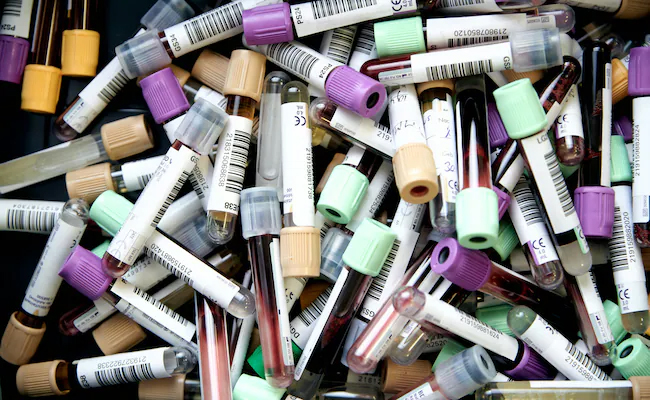| Health Ministry allows use of "Leftover" organs, blood, hair for research | | |  Agencies Agencies
NEW DELHI, June 26: The Union Health Ministry has issued guidelines for the ethical use of "leftover, de-identified and anonymous" samples generated from a diagnostic or surgical procedure on patients for commercial use.
These specimens include organs, parts of organs, cells, tissues, cell products such as blood, blood products (even positive for eHBsAG/HCV/HIV/Syphilis and expired blood), urine, saliva, DNA/RNA, hair, nail clippings, or any other cells, body fluids etc.
The source for these specimens may be patients, autopsy specimens, abandoned wastes, tissue banks, IVF clinics and organ donation centres among others, the health ministry said recently.
After these samples have undergone the required clinical and laboratory testing for the patient, there are large quantities of leftover samples that may remain available in the hospitals.
These samples may be referred to as biomedical waste, sometimes maybe a biohazard, and require appropriate disposal methods, the ministry said.
The hospital itself may have no added value for these samples, nor the capacity to store these samples after the provision of patient care. Such samples are usually discarded as hospital waste, it stated.
According to the 'Guidelines for Ethical use of Leftover de-identified/ Anonymous Samples for Commercial Purpose', these leftover samples if de-identified or anonymous can serve as a precious resource for research and development activities to develop diagnostics, advance innovations, or for the development of kits, identify specific disease markers, or determine relevant health parameters and other such purposes and may have huge value.
"There has been keen interest from commercial companies in procuring and using the leftover and de-identified samples for the development of commercial kits/products or technologies that have the potential to improve future patient outcomes, provide diagnostic accuracy, or offer therapeutic advancements ultimately benefiting society," the guidelines said.
It, however, underlined that the hospitals must ensure the samples are completely anonymous and de-identified irreversibly or non-identifiable materials or leftover biological samples which are not specifically intended for research purposes and are going to be discarded after clinical diagnostics or care
These could be pooled samples or samples without any traceable/ or without any identifiers that could potentially lead back to the patient.
Robust data security measures must be in place to protect any residual information associated with the samples. Companies should maintain transparent and open communication with the relevant institutions and hospitals, the guidelines stated. |
|
